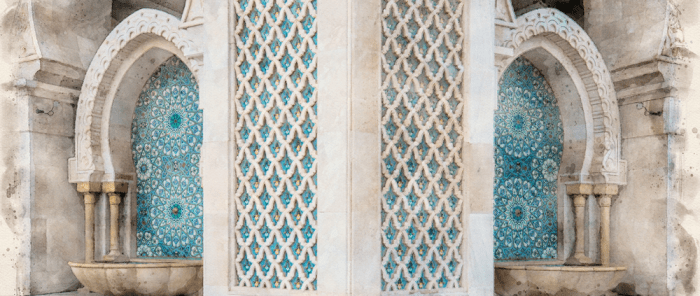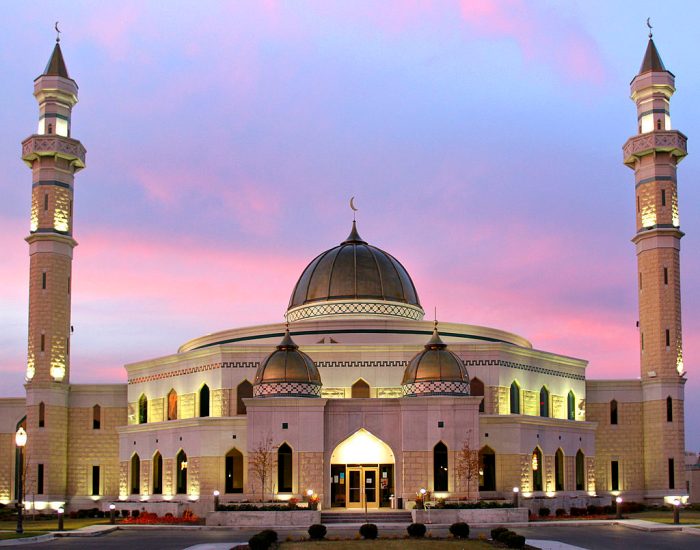Can you go to the mosque on your period hanafi – The question of whether or not women can attend mosques during menstruation has been a subject of debate within Islamic jurisprudence for centuries. This article delves into the Hanafi school of thought’s stance on this issue, examining religious perspectives, hygiene and practical considerations, cultural and societal norms, health and medical implications, alternative forms of worship, and historical and contemporary practices.
The Hanafi school, one of the four major Sunni schools of Islamic law, holds that women are permitted to attend mosques during their menstrual period, provided they take certain precautions to maintain hygiene and prevent the spread of menstrual blood.
This position is supported by Quranic verses and hadiths that emphasize the importance of cleanliness and the prohibition of causing harm to others.
Religious Perspectives: Can You Go To The Mosque On Your Period Hanafi

According to the Hanafi school of thought, women are prohibited from attending mosques during menstruation. This prohibition is based on several Quranic verses and hadiths that emphasize the importance of ritual purity in Islamic worship.
Quranic Verses
One of the Quranic verses cited in support of this position is Surat al-Baqarah, verse 222, which states: “And do not approach them [women] during their periods of menstruation. But when they have purified themselves, then go in unto them as Allah has commanded you.”
Hadiths, Can you go to the mosque on your period hanafi
Several hadiths also support the Hanafi position. For example, in Sahih al-Bukhari, the Prophet Muhammad (PBUH) is reported to have said: “A menstruating woman and a person in a state of janabah (ritual impurity) should not enter the mosque.”
Hygiene and Practical Considerations

Attending mosques during menstruation poses several practical challenges related to hygiene and discomfort.
- Menstrual Blood Leakage:Women may experience menstrual blood leakage, which can be embarrassing and uncomfortable in a public setting like a mosque.
- Potential for Infection:Mosques are often crowded, and attending during menstruation may increase the risk of infection for both the woman and others.
- Physical Discomfort:Menstrual cramps and other symptoms can make it physically uncomfortable for women to sit or kneel for extended periods in a mosque.
Cultural and Societal Norms
Cultural and societal norms also influence the practice of attending mosques during menstruation.
- Taboos and Stigmas:In some cultures, menstruation is considered a taboo subject, and women may be discouraged from attending mosques or participating in religious activities during this time.
- Social Exclusion:Women who attend mosques during menstruation may face social exclusion or judgment from others.
- Cultural Beliefs:Certain cultural beliefs associate menstruation with impurity or contamination, which may lead to restrictions on women’s participation in religious activities.
Health and Medical Implications
There are potential health risks associated with attending mosques while menstruating.
- Transmission of Menstrual Blood:Menstrual blood contains microorganisms that can be transmitted to others if not handled properly. This can pose a health risk, especially in crowded environments.
- Pelvic Inflammatory Disease (PID):Women who attend mosques during menstruation may be at increased risk of developing PID, a bacterial infection of the female reproductive organs.
Alternative Forms of Worship

The Hanafi school of thought recognizes alternative forms of worship that are available to women during menstruation.
- Prayer at Home:Women can perform their daily prayers at home during menstruation.
- Listening to Sermons:Women can listen to sermons and religious teachings from home or through online platforms.
- Supplication and Remembrance:Women can engage in supplication and remembrance of Allah during menstruation.
Historical and Contemporary Practices

The practice of attending mosques during menstruation has evolved over time.
In the early days of Islam, women were generally not prohibited from attending mosques during menstruation. However, as Islamic jurisprudence developed, different schools of thought emerged with varying opinions on this issue.
In contemporary times, the Hanafi school of thought remains one of the most influential in the Muslim world, and its position on menstruation has been widely adopted. However, there are some contemporary scholars who argue for a more flexible approach, allowing women to attend mosques during menstruation under certain conditions.
Questions and Answers
Can women pray in the mosque during their period?
According to the Hanafi school of thought, women are permitted to pray in the mosque during their menstrual period, provided they take certain precautions to maintain hygiene and prevent the spread of menstrual blood.
What are the conditions for women to attend mosques during their period?
Women must ensure that they are clean and free of menstrual blood, and they must take precautions to prevent the spread of menstrual blood to others.
Are there any alternative forms of worship for women during their period?
Yes, women may perform prayers and other acts of worship at home during their menstrual period.